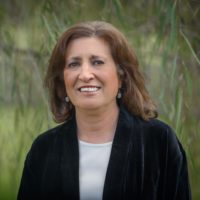Apollonian
Guest Columnist
Book Review: "Masonry...," by Epperson
(Apollonian, 23 Feb 17)
(Apollonian, 23 Feb 17)
Book Review: "Masonry: Conspiracy Against Christianity," by A. Ralph Epperson, Publius Press, Tucson, Az, 1997, 401 pp., is good, credit-worthy exposition of masonry as it covers the subject primarily by reviewing the writings of foremost authors of masonry, like Albert Pike, Manly P. Hall, Albert Mackey, Kenneth MacKenzie, Arthur Edward Waite, and others who were masons and advocates of masonry. So Epperson has done his homework and research, and he brings out some extremely interesting things about masonry.
The first thing to understand about Masonry is (a) IT'S A SECRET ORGANIZATION--do u realize what this means? (b) There is no definitive documentation for what masonry is or what it's all about--IT'S SECRET. Do u get it?--NO ONE KNOWS OR CAN SAY what masonry is about! For example Christianity has New Test. as basic reference doc., but masonry has nothing but what people write about it, like Albert Pike, Manly P. Hall, and the others. Hence someone else can always come along at any moment to say, "oh that's not true," or "that used to be true, but no longer," etc., always keeping things confused and indefinite, and there's NEVER any definitive authority--THERE'S NOTHING.
So masonry consists of a bunch of moronic, mystic rituals for so many things and at every step, as for the "degrees"--even while insisting they're most "rational"--these rituals ALWAYS demanding and insisting upon SECRECY. Furthermore, note that along w. the idiot rituals (a), the (b) demand and insisting on secrecy, (c) there's also the ever-present threatenings of horrific murder, dis-membering, and torture to go along, this all meant to enforce the secrecy, terror, and fear of the members and participants, at least in a part of their minds.
So Epperson pt.s out that since there's no way to access any definitive source or authority, the only thing otherwise we can do is reading and considering the testimony of such as Albert Pike (and the others) who was so authoritative, far as that goes, as the "Grand Commander," etc., of masonry. So if anyone knows, then it would be such as Pike and the others tell us. We have nothing to rely upon but for witness testimony, and Albert Pike would seem to be a good witness for many things. Such then is the quality and subject-matter of Epperson's exposition.
So think about and imagine the enormity of the situation regarding masonry--it's simply this ominous entity or organization, a club or gang of people--who stand for WHAT?--it isn't known except for SECRECY and the moronic, contradictory lies they tell, like about being rationalistic at same time as practicing all the idiot ritualism, etc. Hence, much as anything else, it's only and merely about SECRECY--a secret society--for the sake of secrecy. So who and what would require such overwhelming, over-arching secrecy above all?--and who or what else then but mystics (hence psychotics)?--and who/what beyond that mysticism, but criminals?
So Epperson quite rightly pays most attn. to what is said by such as Pike and Hall, et al., who tell us how the rules inexorably change for behavior requirements of the masonic members as they advance in the degrees. Anyone can be members and hold the first three degrees, the rules being pretty non-descript but fairly normal for the ethical requirements. At first, for the lower degrees, masonry is NOT a "religion," but later on, in the advanced degrees, then we see it is a religion, and masonry is extremely interested in its religion as Pike, for one, tells about in some detail--they're actually quite fanatical and single-minded--but towards what end?
Further, masonry insists it seeks "light" and "knowledge," and eventually Pike tells us that masonry is all about Lucifer the light-giver, their god whom they must worship, obey, and revere. Additionally, as one advances in degrees, we find that obedience to the top degree-holders is required, apart fm and despite anything else, including the laws of the nation in which one lives.
So then how to conclude regarding masonry?--well, it's a satanic, mystic, criminal organization, emphasizing secrecy and obedience, necessarily, beginning w. the dupes of the lower levels and degrees who are then manipulated by the higher degrees, always for "secret" purposes known, if at all, only to the higher "adepts" (masterminds). Epperson also has done quite a bit of lecturing upon this masonic subject, even participating in many debates and discussions w. defenders of masons, and he tells us what they say and how they try to rationalize things.
Note then the aims and deeds of masonry can only be judged by practical actions and effects, aside fm what its own advocates say--how does it work? Well, it's a satanic, criminal organization always in league w. Jews and always working against Christianity--these are the consistent observations to be made. So Epperson does well for our information and his research and exposition upon these basic facts regarding masonry; he deserves much credit for his efforts to our and public's benefit. We can safely and should take Epperson's observations and conclusions seriously.


